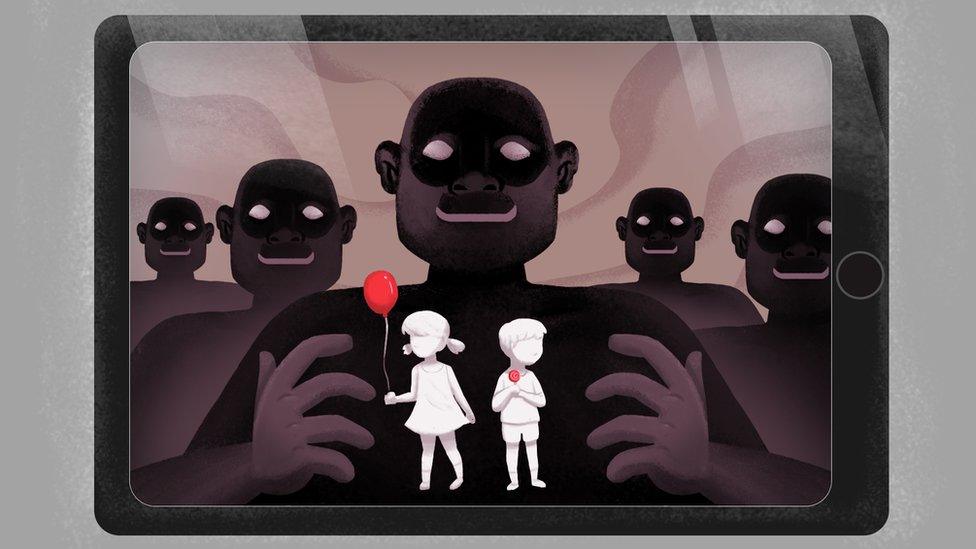One woman's quest to track down online sex abusers
- Published
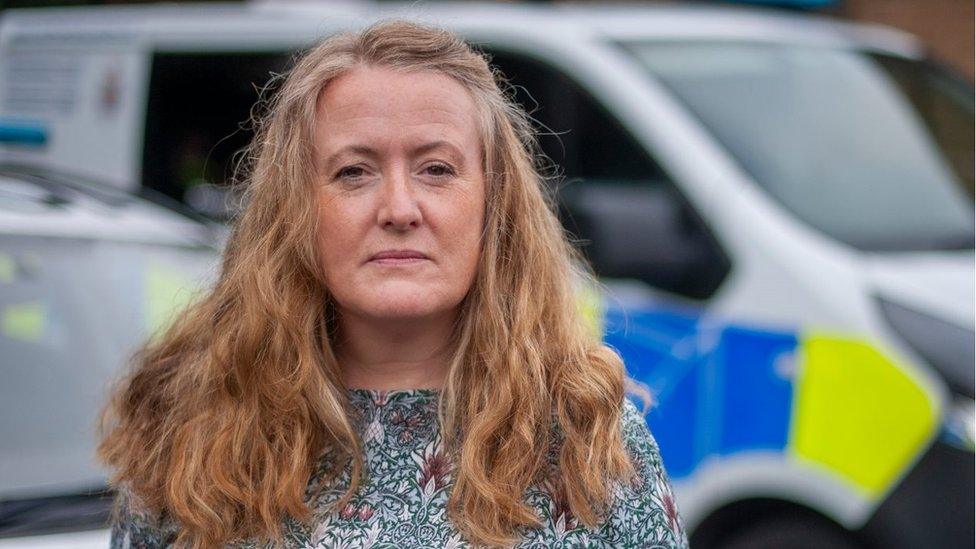
Siobhan Shannon says prosecuting paedophiles is good but saving children feels 10 times better
Siobhan Shannon has a gift for remembering faces. It was this ability that helped her to land a job with Northumbria Police, where she aims to find and save children who are targeted by online paedophiles.
Some of these predators are adept at covering their tracks online, using software to mask their location. It is in these cases that Mrs Shannon, inspired by a determination to catch the abusers and rescue their victims, puts her skills to use.
How does she track online abusers down - and how emotionally troubling is the kind of work she does?
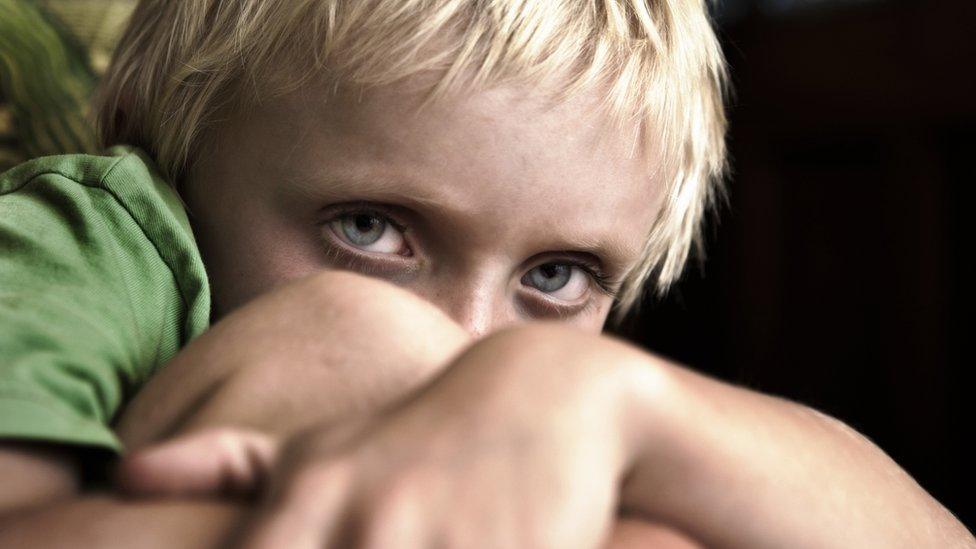
Siobhan Shannon's job is to identify children who are victims of sexual abuse (file photo)
He was known simply as "The Boy".
Blue eyes framed by green-rimmed glasses, probably of primary school age, he was a child in dire need of rescue.
Mrs Shannon had spent four months looking at pictures of him, examining every detail for clues that could lead to her finding him.
The Boy's is one of the thousands of faces to have been seen by Mrs Shannon and her colleagues on the Northumbria Police Paedophile Online Investigation Team (Polit) since the unit's formation in 2016.
As one of the team's two victim identification officers, her task is to identify the children from images using clues such as plug sockets, logos on clothing or a view from a window in the background.
Some are pictures the children took themselves, perhaps coerced by a chatroom predator into removing clothing or performing sexual acts - often not realising that the person they are sharing these intimate moments with is an abusive adult rather than another experimental youngster.
Other photos Mrs Shannon must look at are those taken by the predators themselves, and these sometimes feature the worst kinds of sexual abuse.
The Boy fell into the latter category.

Siobhan Shannon said it was clear The Boy needed help (file photo)
"We knew he was in danger and it could be happening right now," Mrs Shannon said. "I just couldn't get his sad face out of my head.
"Everyone in the team knew him, we all needed to find him. I became a bit obsessed, to be honest."
She found the brand of his glasses and contacted stockists to learn where they had been sold, but that provided no leads.
She spent hours scanning social media sites looking for other pictures of The Boy, anything that could help her find out who and where he was.
Finally, after weeks of searching, she had a breakthrough.
"I keep a list of the children I have been unable to trace as I won't forget about them and when I think of something new, I give it a try," she said.

How to get help
The NSPCC offers a range of guidance to children and parents, external about how to stay safe online.
A full list of other organisations offering help and support can be found here.

"I was searching forums, groups, everything possible linked to children wearing glasses, trawling public posts. And then one day I stumbled across a comment written by a woman with a boy on her lap who looked like him.
"I couldn't believe it when it actually was."
A criminal case is now being pursued and The Boy has been removed from harm. For now, this is enough for Mrs Shannon to know.
She joined Northumbria Police three years ago from the Greater Manchester force, where she was on duty the night of the Manchester Arena bombing.
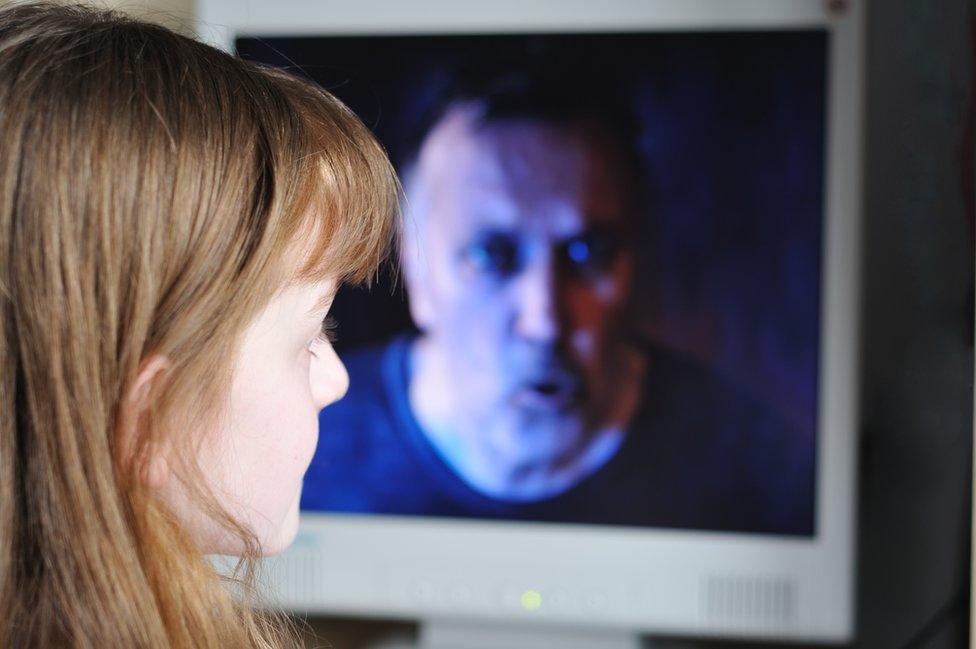
Parents have a crucial role in keeping children safe online
The 51-year-old mother of five said her new role had enabled her to "achieve something".
"The team here is dealing with such horrible images and situations daily but their goal is always the safeguarding of children," she said.
The 15-strong unit will try to work out where and who the victims and suspects are. They use IP addresses and, in cases where online offenders have masked their location, the detective work encompasses such methods as the ones Mrs Shannon used to find The Boy.
Locating and protecting children is the priority for Polit, which is based in Byker in Newcastle, with prosecution an important second.
"When they get a conviction it's good, but finding the victims feels 10 times better," Mrs Shannon said.
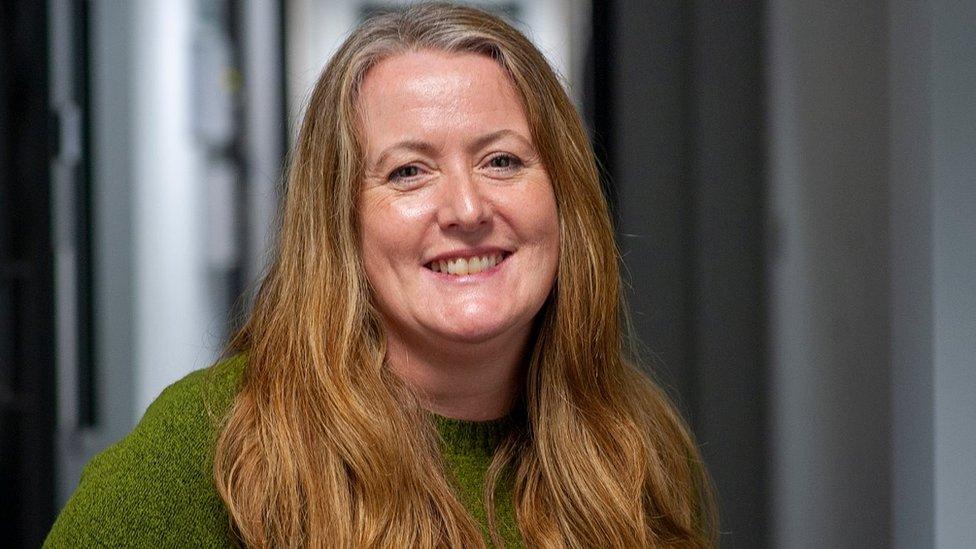
Siobhan Shannon was a support officer at Greater Manchester Police before joining the Northumbria force
She is faced with harrowing images every day.
"The only way I can deal with it is by thinking 'if I am looking at it then we are dealing with it'... and that's got be a positive," she said.
"Some images stay with you and will never go. There is an anger. It's a frustration that you cannot do more."
One of the most high-profile cases the team cracked was that of Michael Coulter who was jailed in 2018.
He would spend hours a day posing as a teenager on the video app Live.Me and persuade teenage girls to perform sexual acts, which he would record and share with other abusers.
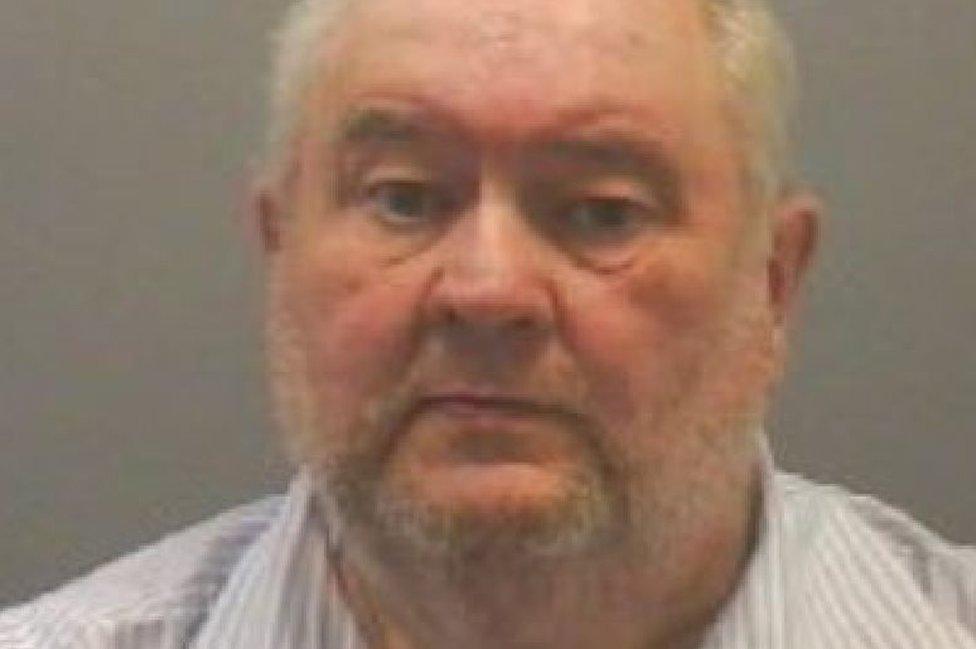
Michael Coulter posed as a teenage boy called Geordie Mike and recorded girls performing sexual acts
Mrs Shannon and her colleagues identified 47 victims around the world, with one girl traced through her distinctive football shirt.
One aspect that particularly concerned the mother of five was how the abuse would often take place close to the victims' parents, who were oblivious to their children's plight.
"When he was talking to children you could see the parents walking behind them," she said. "You could see them walking by while their child was being groomed.
"In one case, he told the child to go to the bathroom and you could hear EastEnders on in the next room."
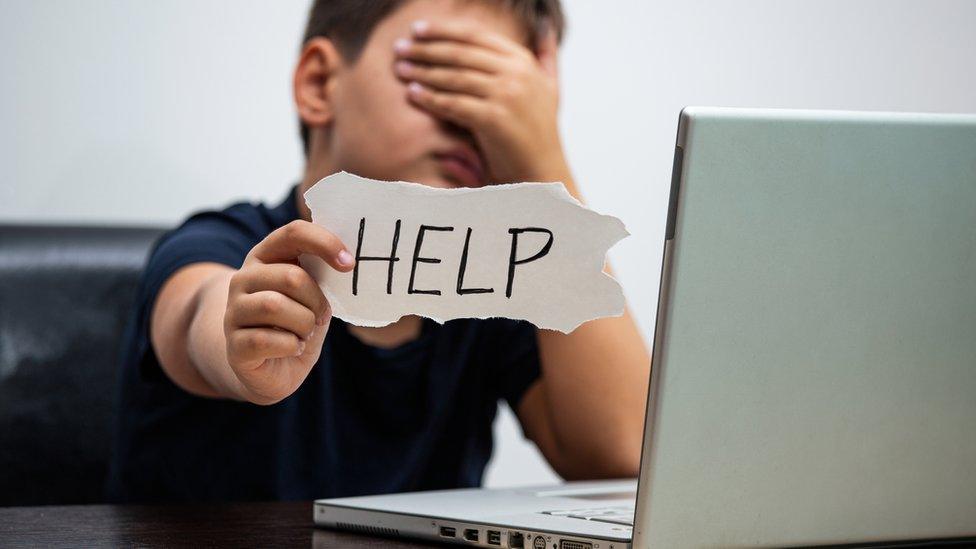
Saving children is the priority for Polit (file photo)
Her job is an unusual one in policing, according to Det Sgt Allen Hull, one of the Polit team leaders.
"Normally the first thing you have is a crime scene, and then you find the evidence," he said.
"But Siobhan starts with the evidence and works backwards to identify where that crime scene is and who is the victim."
Cases are often referred to the team by websites and social media platforms concerned at the tone of content.
The unit makes about 30 arrests a month and there is "no indication that is likely to change", Det Sgt Hull said.
Keeping children safe online can be a daunting prospect for parents, he added.
"They are very good at protecting their kids in the real world, but then will give them an iPad with open internet access and leave them alone.
"We cannot arrest ourselves out of this. It's a much bigger societal problem."
While continuing to educate parents and children about online safety is crucial, Mrs Shannon said she had been seeing an encouraging number of youngsters "disengaging" from conversations, sometimes calling the groomer "gross".
Some of the children may not have realised they were victims at all, and there is a risk that to inform them they have been could traumatise them.
But the greater risk is not to educate about them staying safe online, Mrs Shannon said.
"If this behaviour is normalised for them they might encourage other children to do it.
"If it's just a game for them they might see it as just a game for their little sister. Education has to come into it."

Follow BBC North East & Cumbria on Twitter, external, Facebook, external and Instagram, external. Send your story ideas to northeastandcumbria@bbc.co.uk, external.
- Published10 July 2018
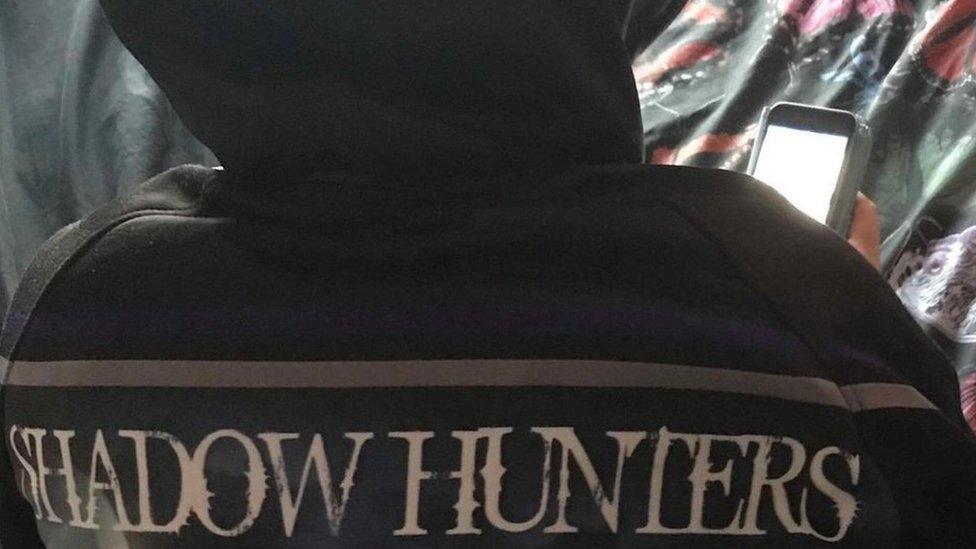
- Published6 November 2019
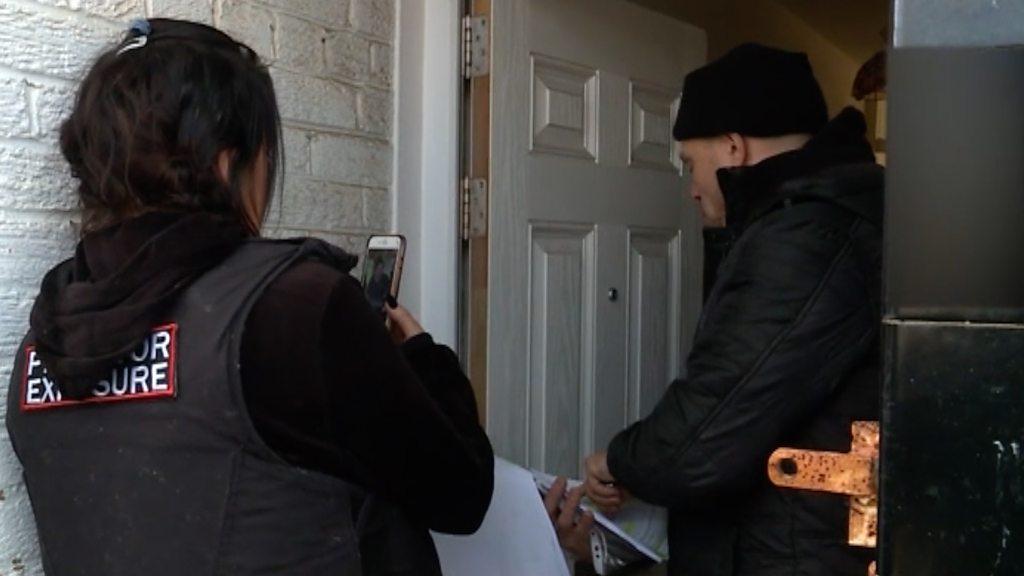
- Published28 November 2018
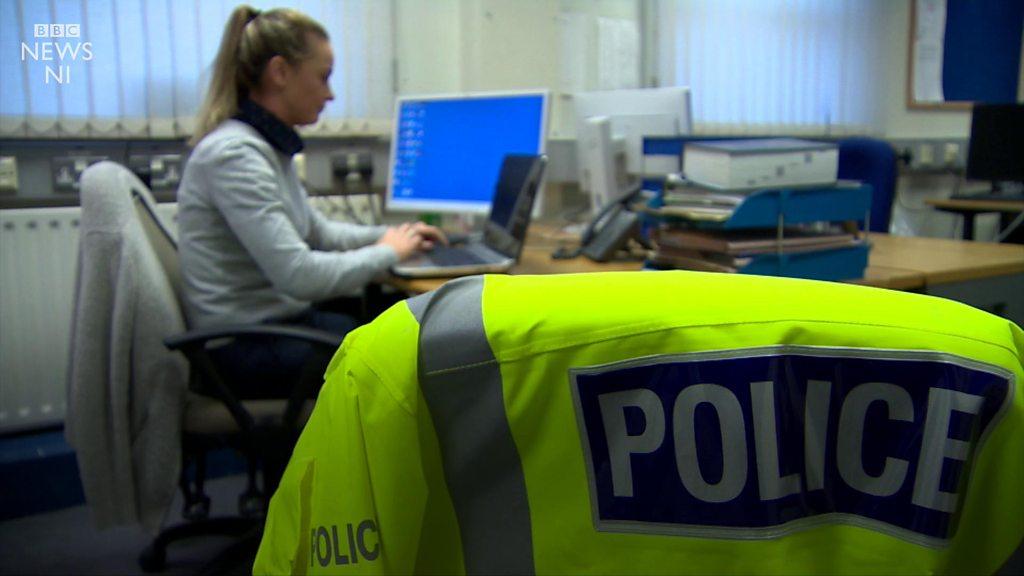
- Published13 September 2017
